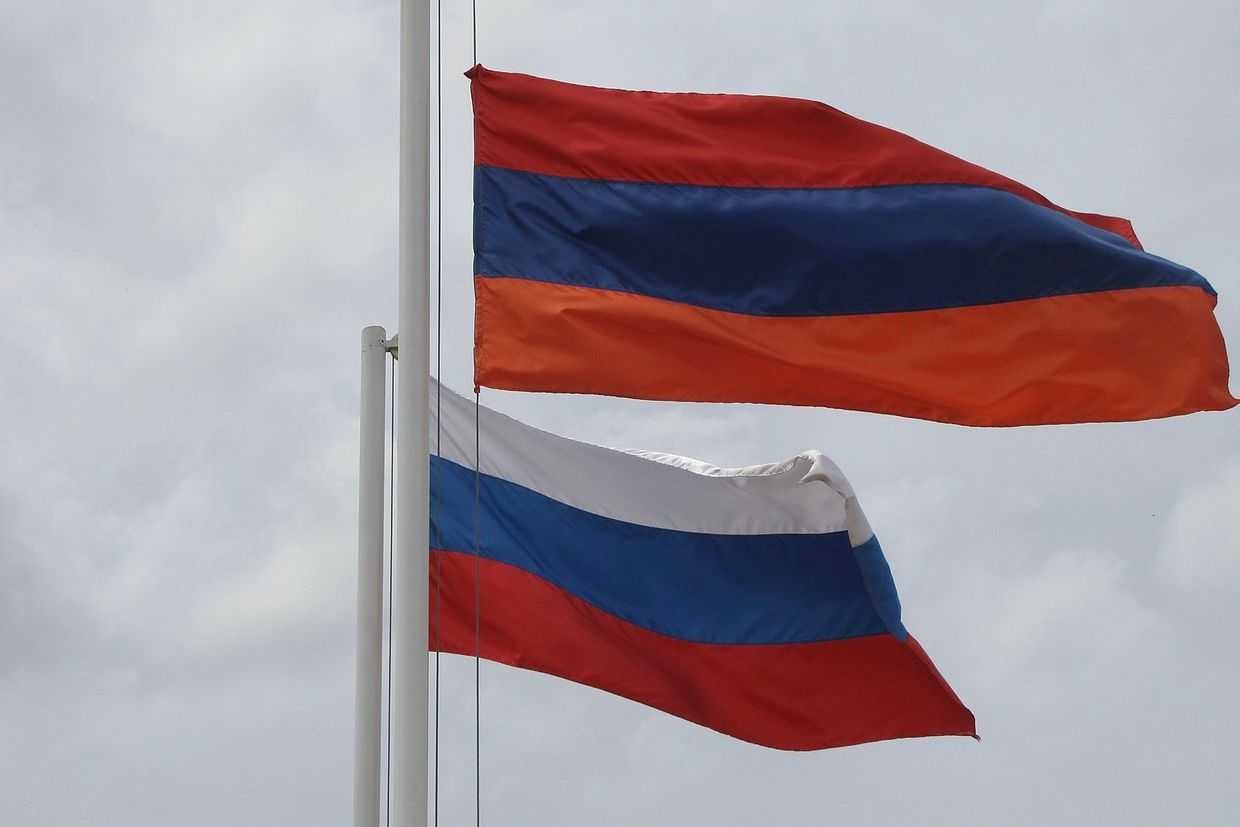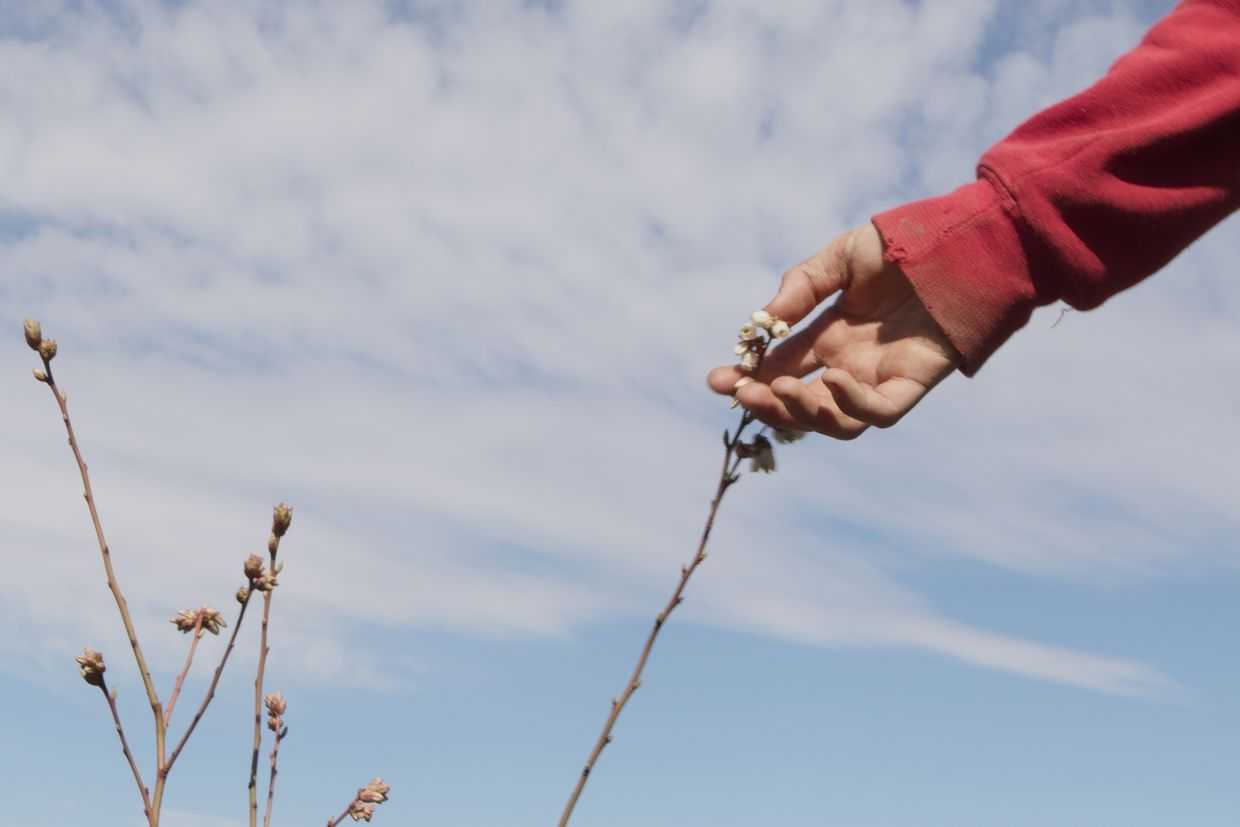
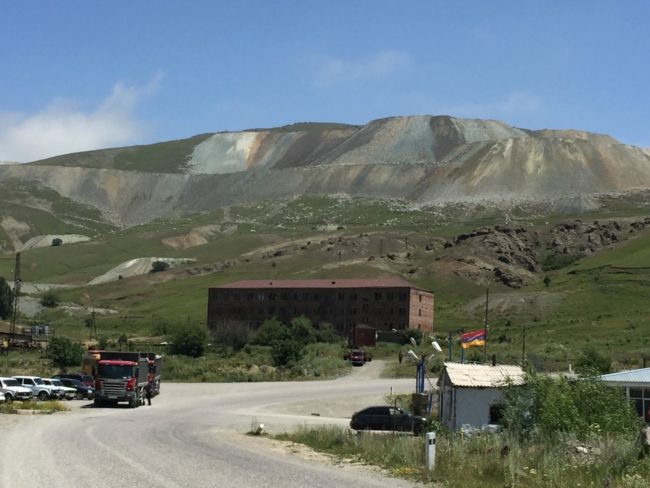
 At over 2,000 metres above sea level, in the last village before the northern mountain pass from Armenia to Nagorno-Karabakh, life in Sotk can be arduous. The village, which until 30 years ago was inhabited by Azerbaijanis, is now home to Armenians who fled their homes in Azerbaijan, though most of these have also moved on to greener pastures.
At over 2,000 metres above sea level, in the last village before the northern mountain pass from Armenia to Nagorno-Karabakh, life in Sotk can be arduous. The village, which until 30 years ago was inhabited by Azerbaijanis, is now home to Armenians who fled their homes in Azerbaijan, though most of these have also moved on to greener pastures.
[Read in Armenian — Հոդվածը հայերեն կարդացեք]
A new life in Sotk
Sixty-three-year-old Zemfira Hakobyan’s hands show traces of heavy agricultural work, her face is darkened by the hot summer sun. As she finishes work in the garden, she goes to milk the cows.
She didn’t always work on the land; she used to be an economist. Now she struggles to cope with the cold and snow.
Zemfira moved to Sotk 29 years ago with her husband, 63-year-old Kimik Karapetyan, from Azerbaijan, where they had spent half of their lives and still remember fondly. After moving to Sotk, the pair struggled to integrate into Armenian society.
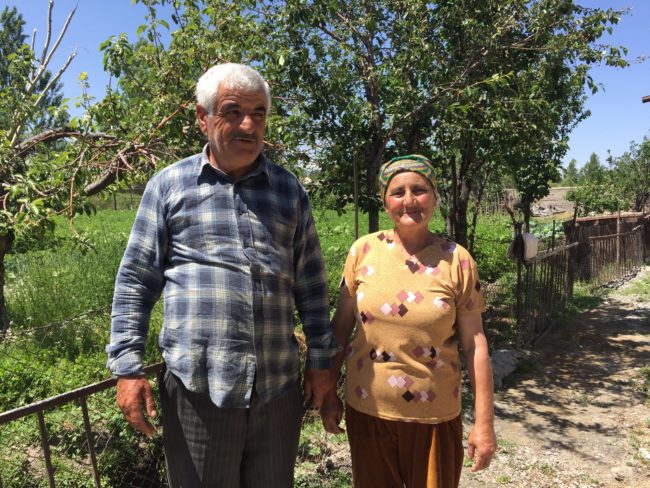
They own 1,300 square metres of land on which they grow potatoes. They say the money they make from selling potatoes is barely enough for their family and their children’s families.
Their pensions total ֏50,000 drams ($100). They also have two cows whose milk they sell once a week for ֏100 ($0.20) per liter, earning them ֏6,000–֏7,000 ($11–$12).
Thirty years ago, many Armenians from the villages of Zurnabad and Mirzik in Azerbaijan moved to Armenia, trying to integrate and adapt to a new life there, Zemfira and Kimik were among them. Until 1990, only Azerbaijanis lived in Sotk — about 3,000 people.
‘In Mirzik, we were engaged in viticulture, there was a forest, a river flowed through the village, our ancestors lived there for 300 years. And now we have left our big houses, big farms, the graves of our ancestors, and moved here’, Kimik tells OC Media.
The disintegration of the Soviet Union
According to the 1979 Soviet census, 161,000 Azerbaijanis lived in the Armenian SSR; making up 5.3% of the population they were the largest ethnic minority. In the Azerbaijani SSR, 7.9% of the population, 475,500 people, were Armenians, 123,000 in Nagorno-Karabakh.
These numbers began to rapidly decline in the late 1980s, and many of them, aware that conflict was imminent, traded houses with each other and moved between the republics. Today, the numbers of Armenians in Azerbaijan and vice versa are negligible.
Today, parts of Sotk resemble a war zone; many buildings stand abandoned, almost entirely destroyed. Azerbaijanis displaced in the Armenian–Azerbaijani clashes of the late 1980s were replaced by Armenians — refugees from Azerbaijan.
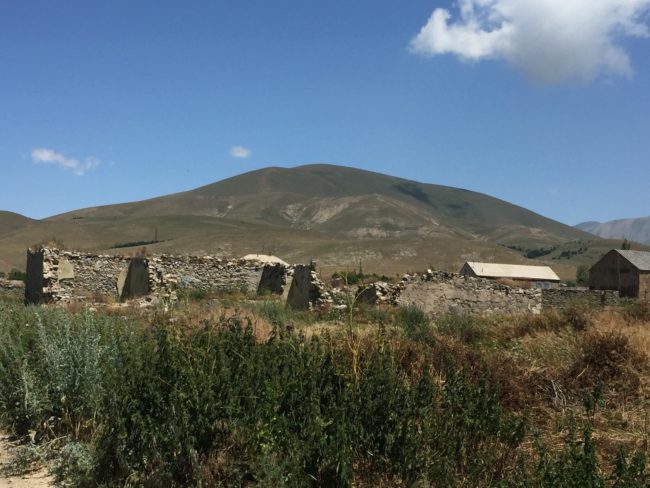
‘Only the most feeble stayed in the village. Those who had the chance left for Russia, officially settled there, and got citizenship’, Zemfira tells OC Media.
The chairman of the village soviet, Kolik Shahsuvaryan, is also a migrant from Azerbaijan. He came here with his parents from the village of Zurnabad.
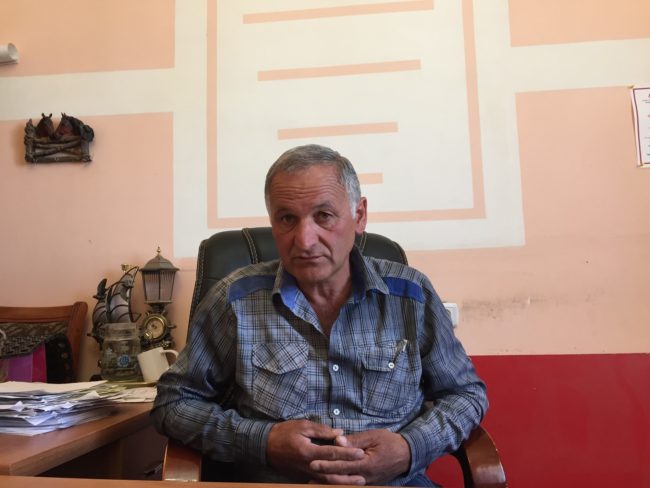
‘Many houses were abandoned by Azerbaijanis in Sotk. In Soviet times there were thirty villages inhabited by Azerbaijanis in Vardenis Community, where Sotk is located, as well as three villages with only Armenians and three that were mixed’, Shahsuvaryan tells OC Media.
When they first arrived, 750 families lived in Sotk, but due to the social and economic crises over the past three decades, many have left Armenia.
‘People left their rich residences and came here, but having faced social difficulties, they mostly left to Russia. In the winter it’s very cold here, and people could not get used to the local climate’, Shahsuvaryan recalls.
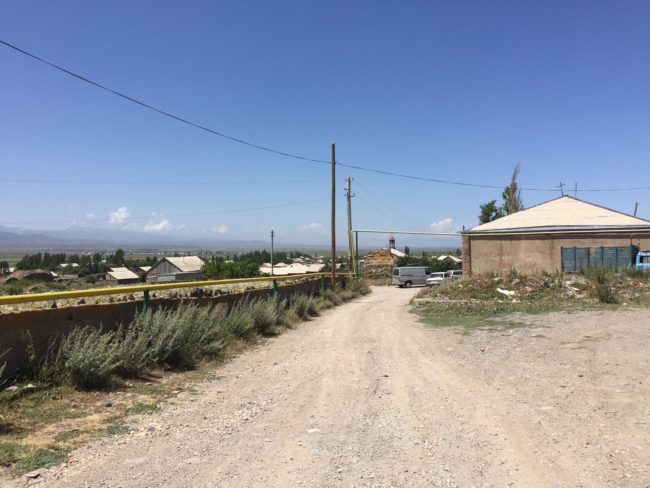
Adapting to village life
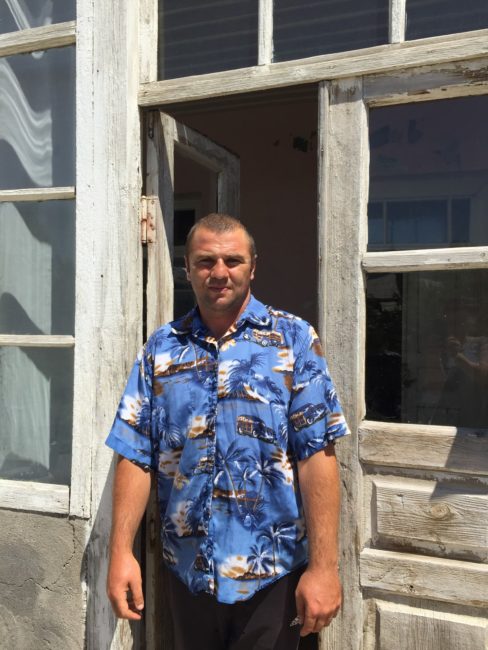
Zemfira’s neighbour Amalia Maghakyan is a 63‐ year-old native of the village of Mirzik, in the Goygol (formerly Khanlar) District in Azerbaijan. A nurse by profession, she continued to work as such after moving to Sotk.
Maghakyan no longer works, and lives with her 29-year-old disabled son Harutyun Gabrielyan. She says she misses very much her friends and relatives who have left the village.
‘Half of the new arrivals left the village within the first year, because they were all from cities and it was difficult for them to get used to village life’, Amalia tells OC Media.
Those who left mainly went to cities across Russia, she adds. She says her economic situation is much worse than theirs.
‘If it were possible, we would have left as well; it’s very cold here. We exchange potatoes for firewood so as not to freeze in winter. In one winter we burn around ֏200,000 ($400) worth of firewood’, she says.
‘In this village, you have to work’
Knarik and Vard Rafayelyan moved to Sotk with their six daughters in 1999 from the village of Araks, in Armenia’s Armavir Province. The house where they live used to belong to an Azerbaijani teacher, but they bought it from Armenians who had exchanged it with him. Knarik works in a school and her husband in the military.
‘The first time I entered the village it seemed to me that it had been bombed, because it was not houses that stood in the village but their skeletons. In this village you have to work, otherwise you can’t survive’, Knarik tells OC Media.
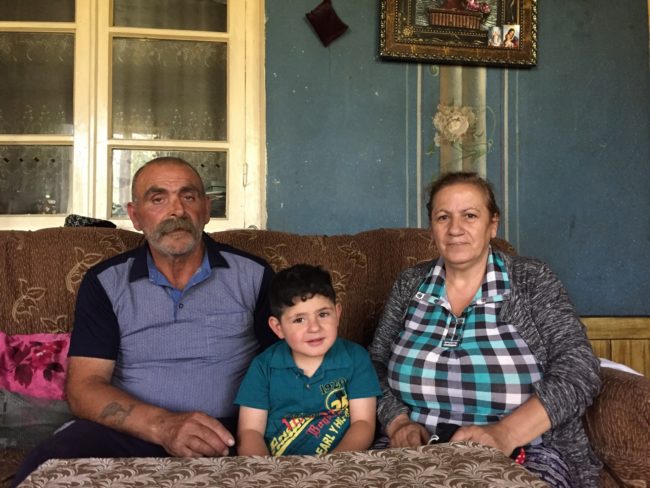
Vard says Sotk is a place for a working person: if you work, you will live well. The economy is largely based on agriculture.
‘Our farmers are doing well, there are four of them. Almost all year round they provide the villagers with work. All winter they work in warehouses, sorting potatoes and seeds’, he says.
One of these four farmers is 42-year-old economist Hakob Avetyan. He also moved here with his parents from Azerbaijan. In the peak working season, the number of people he employs reaches 600–700 people.
‘There are different groups of people: some are creators, hard-working and active; others are waiting for a special invitation to work — although twenty nine years is a long time! There are people who have lost everything, but arrived here, started from scratch, and now they are on their feet and live very well’, Hakob tells OC Media.
His business had modest beginnings, he adds. But now he owns 140 hectares of potato fields in the village of Sotk, and another 20 hectares in Ejmiatsin.
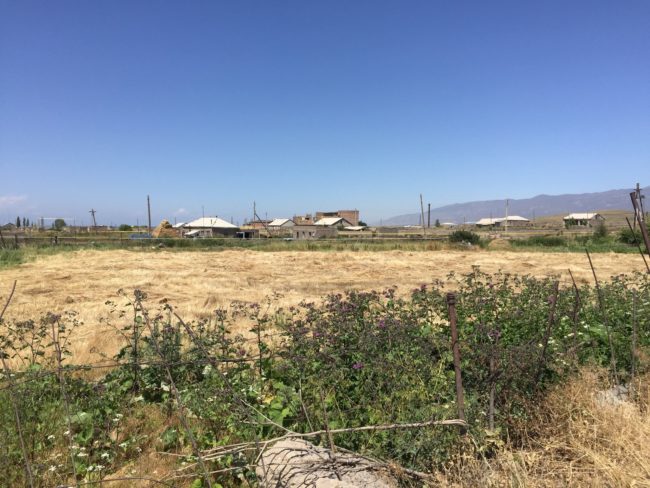
This article was prepared with support from the Friedrich-Ebert-Stiftung (FES) Regional Office in the South Caucasus. All opinions expressed, and terminology used are the words of the author alone, and may not necessarily reflect the views of FES or the OC Media editorial board.


